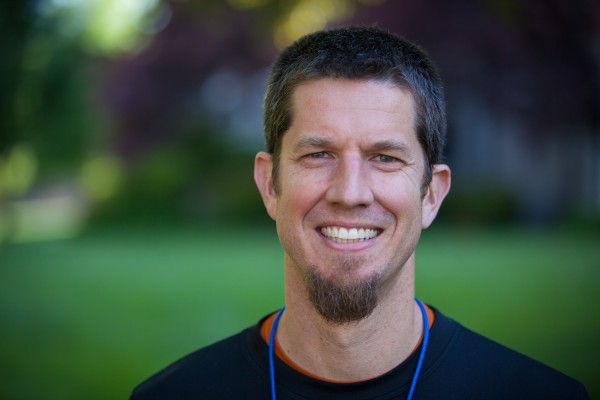 Danny Malec’s journey with peacebuilding began in 1999, when he left his work as a management consultant and followed his heart to Nicaragua, where he served with Jesuit Volunteers International. In Nicaragua, Danny spent three years working with youth in gangs or struggling with addiction, work that inspired him to apply to the master’s program at the Center for Justice and Peacebuilding, where he also took STAR Level I. Danny finished his master’s degree in 2005 and completed STAR Level II in 2010.
Danny Malec’s journey with peacebuilding began in 1999, when he left his work as a management consultant and followed his heart to Nicaragua, where he served with Jesuit Volunteers International. In Nicaragua, Danny spent three years working with youth in gangs or struggling with addiction, work that inspired him to apply to the master’s program at the Center for Justice and Peacebuilding, where he also took STAR Level I. Danny finished his master’s degree in 2005 and completed STAR Level II in 2010.
Danny spent four years working at the Latin American Youth Center (LAYC) in Washington, D.C. He started as a program administrator, overseeing LAYC’s two group foster homes; he also directed LAYC’s community peacebuilding team, which works at violence prevention and restorative justice programming. Danny spent his last year at the center as the program director of Health Promotion.
In August 2012, Danny accepted a position as the social and restorative justice coordinator at E.L. Haynes Public Charter School in the northwest section of Washington, where his main responsibilities were to build positive school culture, prevent bullying and violence, and to facilitate restorative processes. After just a year, Danny took on a new title: Assistant Principal of Restorative Practices. E.L. Haynes’ mission that every student reaches the college of their choice, and Danny’s role is to balance accountability for behavior with encouraging students to integrate into school life in healthy ways and receive the support they need to be successful at school. He works with the student wellness team to foster trauma-informed and therapeutic responses to wrongdoing, and his office is even located in a space called the “Problem-Solving Center,” which students know as a safe space to come and receive support to work through a problem—or when classroom behavior is causing harm. Danny also manages various restorative practices within the school, such as circle processes and “refocus,” a process to repair less serious harm that involves student, advisor and parent. He oversees a program known as “Positive Behavior Interventions and Supports,” which is proactive, setting and teaching clear expectations, rewarding those who follow them and providing interventions and supports to those who don’t meet school expectations.
E.L. Haynes, where Danny works, has a student body that is approximately 70 percent African American, 30 percent Latino, and less than one percent Asian and white. Nearly 75 percent of students come to the high school at least two grade levels behind in both English and math. Many of the students come with significant trauma, as well: They live in communities affected by high levels of violence and the majority of students have experienced that violence firsthand. E.L. Haynes students are also impacted by high rates of poverty—65 percent quality for free or reduced lunches—which comes with its own traumas.
But E.L. Haynes is committed to helping students succeed through holistic approaches. It’s the first school in Washington, D.C. to take up restorative practices as a school-wide approach to behavior and discipline.
Danny says his time at CJP prepared him well for his current work, which requires a thoughtful, reflective and authentic approach. “Always seeking,” says Danny, “the voice and input of the youth that we are trying to serve every step of the way.”
For Danny, STAR and its models help on a daily basis—both with working with students and training adults who work with the youth.
“Being able to understand the effects of trauma on the brain and body and then to help others understand those effects has been a great asset to our work,” says Danny.
Danny and his colleagues are working on ways to grow restorative approaches within the school. This spring, he and the high school lead social worker are planning to invite 20 of their highest risk students who’ve identified experiences of trauma to participate in a class that will deal with social skills, trauma and resilience. The curriculum will pull heavily from Youth STAR, and they’re hoping to offer the course for years to come.
Danny Malec holds a bachelors’ degree in industrial engineering from the Georgia Institute of Technology and MA in conflict transformation from the Center for Justice and Peacebuilding. He resides in Washington, D.C., with his wife and two children.
